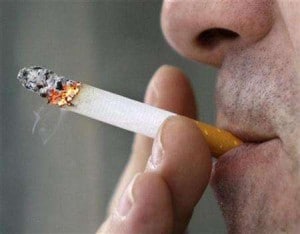This year the number of smokers in the United States has hit an all time low. Those who do smoke smoke less than smokers have in the past, with most only getting through half a pack a day. People are more likely to admit they’d like to quit and less likely to consider themselves addicted. These numbers have continued to drop since the 1970s. In a recent poll, when asked if participants could go back and never start the harmful habit in the first place, the majority gave a definite yes. Campaigns that discourage smoking and list off the habit’s negative side effects are more common than ever. Given that things continue as they’ve been, the future of smoking isn’t looking bright. Accordingly, the future of the US’ dental health only promises only to improve. Why do the two go hand in hand? How much effect can smoking really have on you and your teeth?
Comparing Nonsmokers And Smokers
A national survey done in 2008 aimed to compare the dental health of smokers, ex-smokers and nonsmokers. What they found echos what similar studies and surveys have revealed for years: smoking negatively affects your dental health in a big way.
-
Smokers are twice as likely as nonsmokers to have several dental health issues or complications. Ex-smokers were more likely to have at least one.
-
Smokers also visited the dentists less (even though they needed it more). 20% of smokers hadn’t visited the dentist in the past five years. Visiting the dentist is a necessary part of maintaining dental health and oral hygiene.
-
Half of the adults who cited cost as the reason they hadn’t visited a dentist within the past year were smokers.
-
A smoker is more than four times as likely as someone who has never smoked to be in poor oral health status.
This study proves fully that smokers generally have poorer oral health than nonsmokers and put themselves at unnecessary risks for serious dental complications. Smokers are more likely than nonsmokers to develop periodontal disease. Periodontal disease is a disease of the gums that makes them loose and pull away from the gums, leaving teeth unsupported. Severe cases of periodontal disease (of which are usually had by smokers) leads to tooth and bone loss. While things can be done to repair the look and state of a mouth that has this serious of a case of periodontal disease, there is no regrowing teeth or bone material. Smoking also causes tooth decay. Even if you manage to prevent periodontal disease when smoking, tooth decay could be occurring. It’s easier to build up plaque and tartar when smoking which puts you at greater risk for decay.
Besides all of these very serious dental health complications, there are some purely annoying effects smoking can have on your dental health. For instance, smoking gives you terrible halitosis. And not the kind that can be cured with a swig of mouth wash. That smoke-breath, tobacco taste can stay with you for days, through multiple brushes. It can also stain your teeth in a very permanent way.
Call Dr. D’Alfonso of Lakeway Center For Cosmetic and Family Dentistry today! Remember that an important part of dental health is visiting a dentist!
